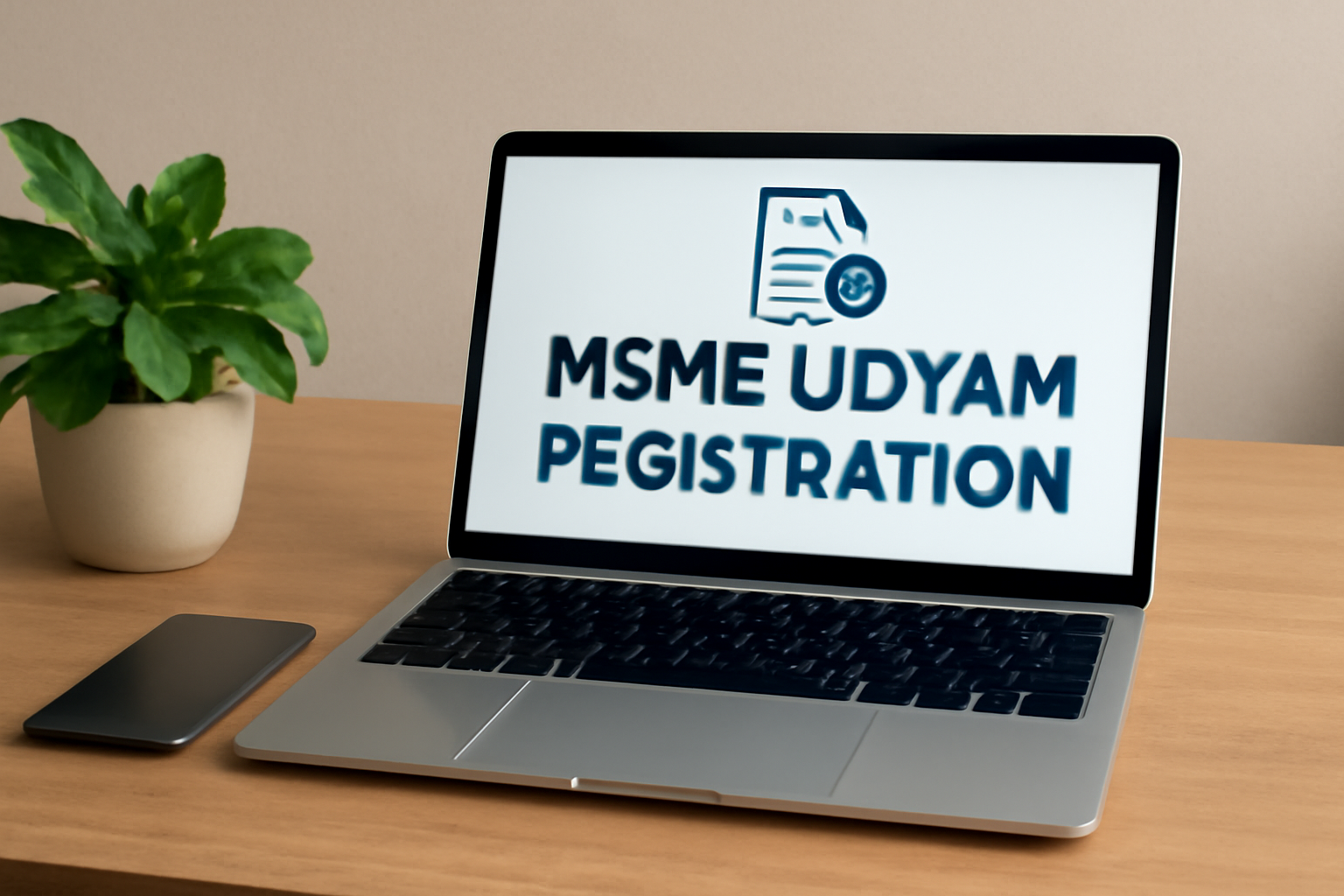In today’s digital age, where businesses are increasingly relying on online platforms for their operations, a Digital Signature Certificate (DSC) has become more crucial than ever before. Whether you are filing taxes, signing contracts, or submitting documents to the government, having a DSC is no longer optional. In fact, it is a necessity for businesses in India in 2025.
So, what exactly is a DSC, and why is it so important for your business? Let’s dive into the details.
What is a Digital Signature Certificate (DSC)?
A Digital Signature Certificate (DSC) is an electronic equivalent of a handwritten signature or a company stamp, used to authenticate the identity of the person or organization signing an electronic document. Just as a handwritten signature validates a physical document, a DSC validates the authenticity and integrity of electronic documents, ensuring that they have not been tampered with.
Issued by a Certifying Authority (CA) in India, a DSC is used to sign digital documents securely, ensuring confidentiality, non-repudiation, and legal validity. A DSC can be used in various scenarios like government submissions, e-filing of income tax returns, signing e-contracts, and much more.
Why Does Your Business Need a DSC in 2025?
As we move further into the digital era, a DSC is no longer just a nice-to-have tool. It’s critical for businesses to stay compliant with government regulations, enhance their operational efficiency, and build trust with clients. Here’s why your business needs a DSC in 2025:
1. Government Compliance
In India, several government departments now require the use of DSCs for business-related filings and submissions. These include:
- Income Tax Department: The Income Tax Department mandates the use of DSC for filing e-returns for companies, partnerships, and professionals.
- Ministry of Corporate Affairs (MCA): For company registration, filings, and annual returns, DSC is a must.
- Customs and Central Excise: DSC is required for online submissions, import/export-related documentation, and other customs activities.
By having a DSC, your business stays compliant with legal and regulatory requirements, avoiding potential penalties or delays in processing important documents.
2. Enhanced Security
One of the most significant benefits of a DSC is security. When a document is signed digitally, the signature cannot be altered, ensuring the document’s integrity. The private key used to sign the document is stored securely on a USB token or smart card, making it nearly impossible for unauthorized individuals to tamper with the document. This level of security is far superior to traditional paper-based signatures, which can easily be forged.
3. Faster Processes & Greater Efficiency
A DSC eliminates the need for physical paperwork and manual signatures, speeding up processes significantly. For instance, signing and submitting documents online reduces the time spent on courier services or in-person meetings. Businesses can also automate workflows, enhancing efficiency. With DSCs, you can:
- Sign contracts and agreements without having to print them.
- Submit tax returns, financial statements, and compliance reports quickly.
- Conduct secure and fast online transactions.
This leads to cost savings and a reduction in administrative overhead.
4. Trust and Credibility
Using a DSC adds an extra layer of trust and credibility to your digital communications. Clients, suppliers, and business partners are more likely to trust documents that are digitally signed with a certificate because they know that the document is authentic and tamper-proof. A DSC acts as a stamp of authenticity, ensuring that your digital communications and contracts are valid.
5. Legal Validity
A DSC is legally recognized in India under the Information Technology Act, 2000. This act gives digital signatures the same legal standing as a handwritten signature, making your digitally signed documents valid and enforceable in a court of law. Whether it’s a business contract, an agreement, or a tax return, a DSC ensures that your document holds up in legal proceedings.
Types of Digital Signature Certificates
There are three types of DSCs, each suited for different business needs:
1. Class 1 DSC
Class 1 certificates are used for personal use, mainly for securing email communications and identity verification. This type of DSC is commonly used by individuals who need to digitally sign documents for personal transactions.
2. Class 2 DSC
Class 2 certificates are used for corporate filings such as tax returns, company incorporation, and submitting documents to the Ministry of Corporate Affairs (MCA). This type of DSC provides a higher level of security and is the most common type for businesses.
3. Class 3 DSC
Class 3 certificates are used for high-level transactions like e-tendering, e-auctions, and signing high-value agreements. This is the most secure form of DSC and is used for activities that require extra security and authentication.
How to Apply for a DSC in India?
The process of applying for a DSC is simple and straightforward. Follow these steps to apply for your Digital Signature Certificate:
Step 1: Choose a Certifying Authority (CA)
In India, DSCs are issued by Certifying Authorities (CAs) licensed by the Controller of Certifying Authorities (CCA). Popular CAs include eMudhra, nCode Solutions, and Sify Technologies.
Step 2: Submit Required Documents
To apply for a DSC, you’ll need to provide the following documents:
- Proof of identity (e.g., PAN card, passport, Aadhaar)
- Proof of address (e.g., utility bill, bank statement)
- Passport-sized photograph
For business DSCs, you’ll also need:
- Certificate of incorporation
- PAN card of the company or business
Step 3: Fill Out the Application
Once you’ve chosen a CA and gathered your documents, you can apply online. Fill out the necessary forms and submit your documents.
Step 4: Verification
The Certifying Authority will verify your documents and may require you to appear in person for verification.
Step 5: Receive the DSC
After successful verification, your DSC will be issued and sent to you. The certificate is typically stored on a USB token or smart card for security.
How to Renew a DSC?
A Digital Signature Certificate is typically valid for 1-2 years depending on the type. To renew your DSC:
- Log in to the Certifying Authority’s website.
- Submit renewal application along with updated documents if required.
- Pay the renewal fee.
- Receive the renewed DSC.
Conclusion
In a rapidly digitizing world, businesses need to ensure they stay ahead of the curve in terms of security, compliance, and efficiency. A Digital Signature Certificate (DSC) is no longer just an optional tool, it’s a vital necessity for businesses in India in 2025. With the legal recognition, security, and speed it offers, it’s clear that a DSC is indispensable for anyone looking to succeed in the digital age. Don’t wait for the last minute, apply for your DSC today and ensure your business remains compliant and secure for the future.
By understanding the importance of DSCs, staying compliant, and renewing your certificates on time, you can run your business smoothly, legally, and securely in 2025.



